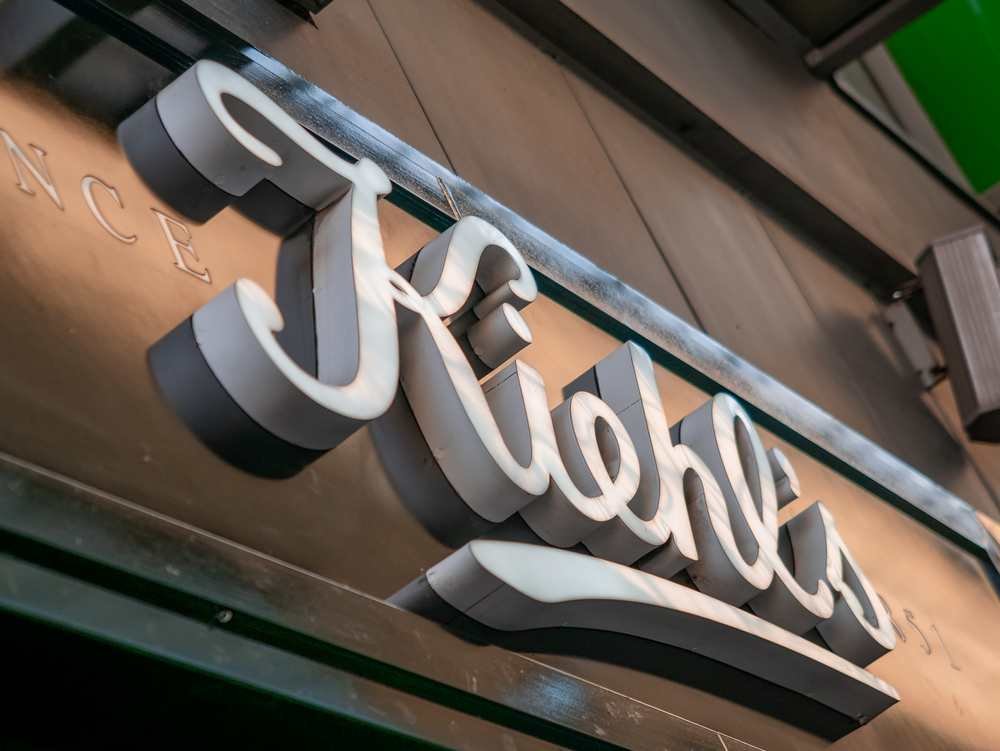Let’s look into the Kiehl’s brand’s current animal testing policy and cruelty-free status in 2021.

Is Kiehl’s Cruelty-Free?
Is Kiehl’s a cruelty-free brand? NO!
Kiehl’s products are available in mainland China where animals are subjected to product testing by law and hence any brand that sells its products in China are involved in these mandated animal tests because of which they cannot be considered cruelty-free.
Is Kiehl’s Sold in China?
Are Kiehl’s products sold in China? YES!
As per the Chinese law, products that fall under the cosmetic category which include make-up, skin-care, hair-care products etc (except oral care products and soap), and are manufactured internationally to be sold in physical stores in mainland China have to undergo animal testing procedures to be deemed safe for sale in the Chinese market. These are known as pre-market tests.
Other than pre-market tests, products are also pulled out from shelves and tested, especially after a consumer complaint.
And this is the main reason why products that sell to mainland China cannot be considered completely cruelty free as it always runs a risk of being subjected to animal abuse.
Is Kiehl’s Vegan?
Is Kiehl’s a vegan brand? NO!
A brand can be considered Vegan if, one, it does not have any ingredients (active or inactive) that are derived from animals and two, if it is not involved in any form of animal cruelty or abuse.
Kiehl’s is sold in China where animal testing is mandatory and these tests are often financed by the brand so as to obtain the necessary approvals for sale in the Chinese market. This means that the brand is involved in animal cruelty, even if it may do so to adhere to laws and regulations.
Kiehl’s also does not have products that have 100% plant derived ingredients. Retinol which is an active ingredient in its anti-aging serums is an animal-derived source of vitamin A and apart from that stearic acid and its derivatives (stearyl alcohol, cetearyl alcohol etc) are found as an inactive ingredient in most of its products. These are fatty alcohols which are used as thickening agents and are derived from animal tallow.
What is Kiehl’s Animal Testing Policy?
Kiehl’s animal testing policy is mentioned in its customer service page under General Inquiries. It states,
Our consumers’ health and safety have always been an absolute priority for L’Oréal. As is the support of animal welfare.
L’Oréal has developed a very rigorous safety evaluation procedure of its products, backed by research. Well before the question of animal testing was raised by civil society or within a regulatory framework, L’Oréal has been committed to new methods of assessing safety that don’t involve animals. A true pioneer, L’Oréal has been reconstructing human skin models in laboratories to elaborate in vitro safety tests since 1979, as an alternative to animals. In 1989, L’Oréal completely ceased testing its products on animals, thus 14 years before the regulation required so. Today, L’Oréal no longer tests its ingredients on animals and no longer tolerates any exception to this rule.
Certain health authorities may nevertheless decide to conduct animal tests themselves for certain cosmetic products, as it is still the case in China. L’Oréal has been the most active company working alongside the Chinese authorities and scientists for over 10 years to have alternative testing methods recognized, and permit the cosmetic regulation to evolve towards a total and definite elimination of animal testing. Thanks to this, since 2014, certain products manufactured and sold in China like shampoo, body wash or make-up are no longer tested on animals.
This is a very textbook kind of response where the key answer is diluted in a slurry of words. It is stated that L’Oreal, which is the parent company, no longer tests ‘ingredients’ on animals and has no mention of testing final products. Which means the final products are tested on animals, when required by law as in the case of sale in China. So, though L’Oreal may be involved in many initiatives to curb animal cruelty, the fact remains that they continue to be a part of it for the sake of expansion and profits and higher market share.

Is Kiehl’s Owned By A Parent Company?
YES! Kiehl’s was founded in 1851 as a single pharmacy but grew over the years into a brand and was acquired by L’Oreal in 2000 and is now a part of the L’Oreal Luxe division.
What Does Kiehl’s Sell?
Kiehl’s sells a range of skin-care, hair-care and body-care products for men and women. These include anti aging serums, moisturizers, face oils, sunscreens, shampoos, hair masks, after-shave, body washes etc.
What is Kiehl’s Current Cruelty-Free Position?
Kiehl’s position in 2021 is that it is NOT a cruelty-free brand.
Kiehl’s is categorized as a not cruelty-free brand because it adheres to one or more of the 5 criteria:
- It directly engages in animal testing
- It’s supplier’s engage in animal testing
- It permits a third party to test on their behalf
- It tests on animals when required by law
- It sells products in stores in mainland China despite being aware of the country’s mandatory animal testing policy
I Use Kiehl’s Products. What Can I Do to Help?
You can let the brand know how you feel. Speak to them about your concerns regarding their cruelty-free status. Brands with bigger market presence have the impact to bring bigger changes that can affect the future of retail and this should be utilized not only for the brands personal success but also to make a mark on the environment and ethical policies. Only together can we change age old laws and regulations and in the true essence, say that humankind has developed and evolved.





